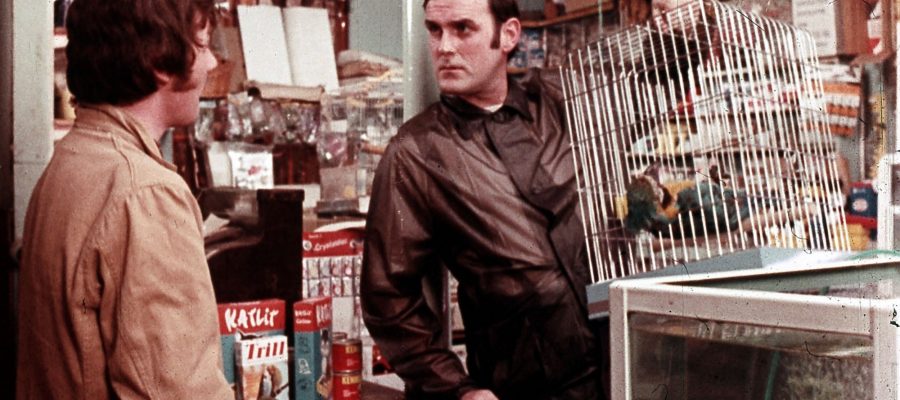Did you know that Inuits don’t have a word for ‘war‘? Did you know that when describing ‘time’, Native Americans only used one phrase – before and after harvest? Does that mean that Inuits don’t know what war is? Does that mean that Native Americans managed to reach life in fourth dimension where time didn’t exist? Probably not, but their perception of life must have been different to ours. I wonder how our life journey would look like if we didn’t have a word for death.
However, a remarkable creativity surrounds the vocabulary of death. The words and expressions range from the solemn and dignified to the jocular and mischievous. And there is no better example of the latter than the “parrot” sketch in the BBC television series, Monty Python. A customer returns to a pet shop where he had earlier bought a supposedly living parrot. The owner refuses to accept that the bird is dead, and the confrontation leads to a glorious outburst of deathly lexicon:
Customer: He’s bleeding demised!
Owner: No no! He’s pining!
Customer: He’s not pining! He’s passed on! This parrot is no more! He has ceased to be! He has expired and gone to meet his maker! Is a stiff! Bereft of life, he rests in peace! If you hadn’t nailed him to the perch he be pushing up the daisies! His metabolic processes are now history! He’s off the twig! He’s kicked the bucket! He shuffled off his mortal coil, run down the curtain, and joined the bleeding choir invisible! This is an ex-parrot!!
His customer could have also described his parrot as gone, departed, fallen, died away, parted from life, going on a journey, totally died off, with it spirits and forth, completely scattered, or glided away.
In old English, the early verbs are rather mundane and literal notions of ‘leaving,’ such as wend, go out of this world, fare, leave, and part. Only later did we get a sense of where one is going to, with an initial focus on ancestors evolving into the idea of a divine presence: be gathered to one’s fathers, go over to the majority, go home, pass to one’s reward, launch into eternity, go to glory, meet one’s maker, get one’s call.
The list displays a remarkable inventiveness, as people struggle to find fresh forms of expression. And so we move on to idiomatic expressions, other phrases and loanwords from other languages: pay one’s debt to nature, determine, expire, trespass, decease, slip one’s cable, kick the bucket, meet one’s maker, etc.
Death is just a very difficult concept to grasp. I wonder what future generations will call it. Transition, rebirth, transformation, the cosmic journey, or even perhaps unification? What do you think?
